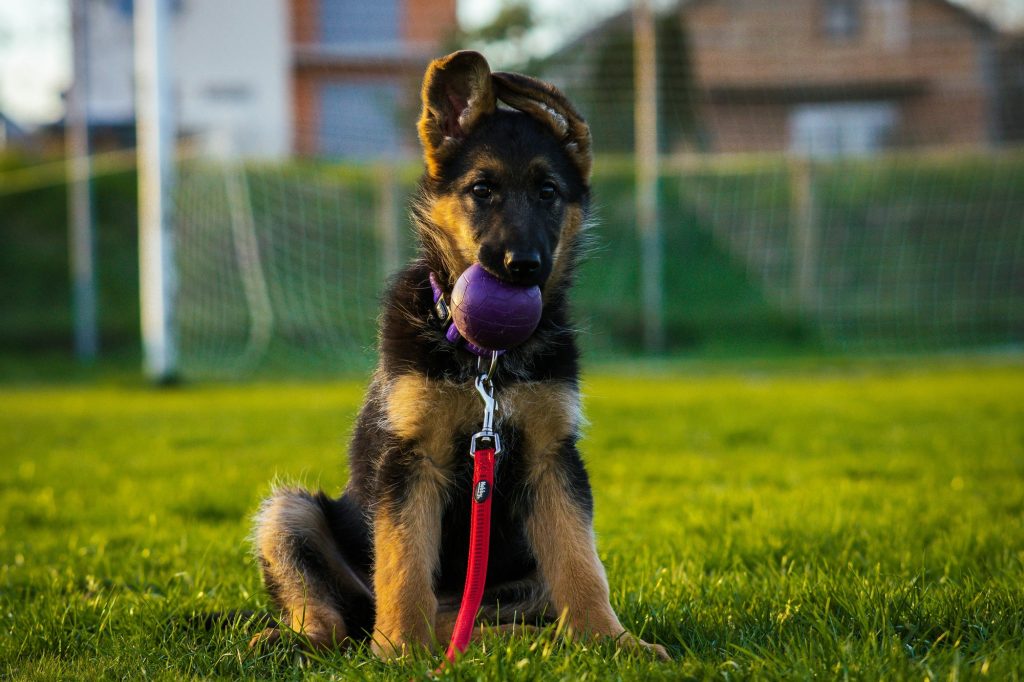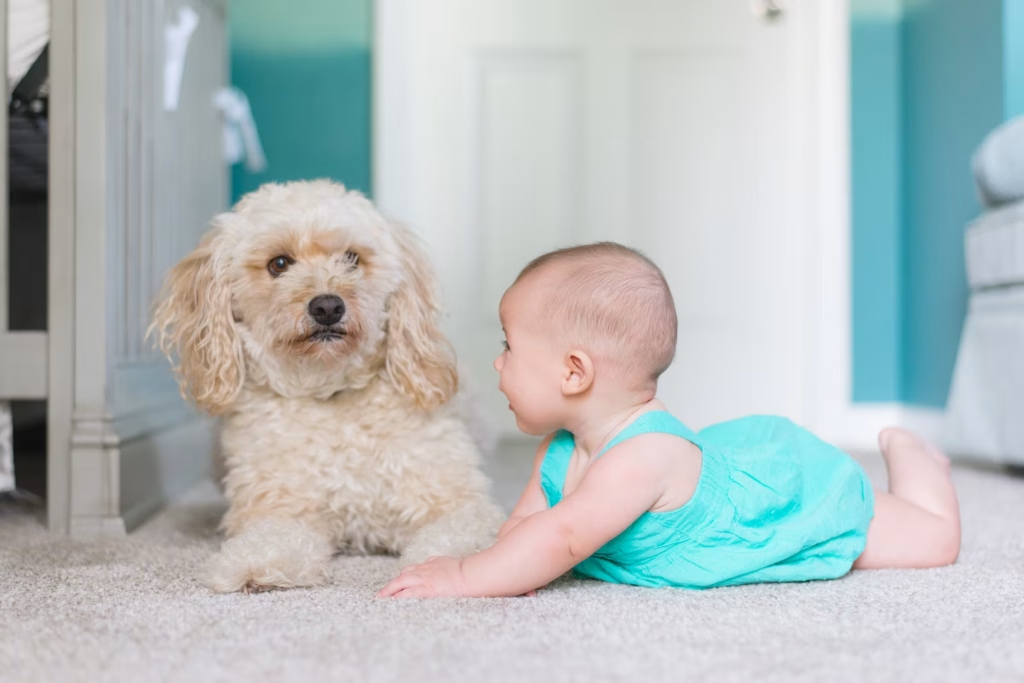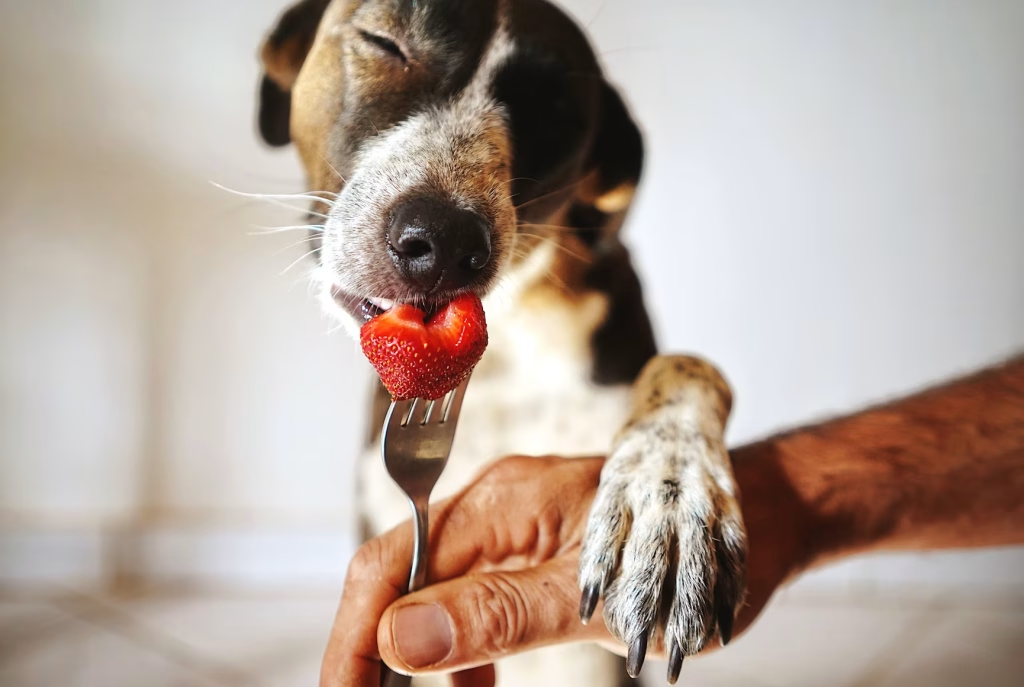
Choosing a name for a new puppy might be one of the most joy-filled decisions a pet parent makes—until you realize just how many cute options there are. It’s not just about picking something that sounds sweet; it’s about capturing your pup’s personality in one perfect word. Whether you’re leaning toward something playful, nostalgic, or delightfully silly, a name that melts hearts will make every vet visit, walk, and cuddle session feel even more special, these puppy names are packed with charm, and yes, a few might make you tear up just imagining them on a tiny name tag. Get ready to fall in love with some of the most adorable dog name ideas out there.
1. Waffles
Waffles are warm, cozy, and impossible not to smile at—just like the breakfast they’re named after. It’s the kind of name that instantly brings up images of golden fluff and a happy wagging tail. Great for cuddly pups who love to snooze in sunbeams or curl up like a cinnamon roll. Bonus: it’s just fun to say out loud. A dog named Waffles is bound to leave a lasting impression at the dog park.
2. Pudding
Soft, sweet, and maybe just a little bit squishy, Pudding is perfect for those extra-snuggly pups with big eyes and floppy ears. This name has a vintage charm to it, like something out of a storybook. It works especially well for lap dogs or shy rescue pups in need of a little extra love. Saying “Pudding, come here!” just feels like giving a hug with your voice. It’s tender, nostalgic, and guaranteed to turn heads.
3. Button
Tiny dog? Big name energy. Button is an ideal fit for those pint-sized puppies who look like fairies sewed them together. It’s playful and endearing without trying too hard. Think of a pup with tiny paws and big curiosity who steals everyone’s attention without making a sound. Naming a dog Button says they’re small but packed with personality.
4. Muffin
This name just radiates sweetness. Muffin is a classic choice for soft-coated pups or those with a gentle, mellow temperament. It’s got a homey vibe, the kind of name you want to say every time you walk through the door. Whether your puppy is chocolate-colored, blueberry-eyed, or just full of joy, Muffin wraps them in warmth. This is one of those names that only gets cuter with age.
5. Pickles
Pickles brings a dash of quirk to the list. Perfect for a spunky pup who zips around the house like a whirlwind one minute and crashes into your lap the next. It’s a name that says “I’m full of surprises,” just like the dog who carries it. Whether your pup has a unique bark, a sideways tail wag, or a taste for trouble, Pickles captures the playful spirit of puppyhood. Plus, it’s sure to make strangers giggle.
6. Niblet
Niblet is a name that never gets old for the tiniest pup with the biggest personality. There’s something about the soft “nib” sound that makes it feel gentle and cozy, like a whispered nickname. Great for teacup breeds, runts of the litter, or dogs who stay forever puppy-sized. Niblet feels personal and custom, like a name you invented just for your one-of-a-kind fur baby. It’s a little silly, but in the best possible way.
7. Marshmallow
If your puppy is pure fluff and sugar, Marshmallow might be the ultimate fit. This name is especially adorable for white or cream-colored dogs, but it works for any pup with a soft, sweet disposition. Marshmallow is comforting, inviting, and just a little magical— like the dog who never wants to leave your side. It gives you instant cozy vibes every time you say it. And let’s be honest, calling out “Marshmallow” in public is a great conversation starter.
8. Tater Tot
This name practically guarantees instant smiles. Tater Tot is full of spunk, making it ideal for round-bellied puppies with stubby legs and nonstop wiggles. It’s unexpected, a little goofy, and totally irresistible. You can picture a dog with this name bounding across the yard like a bite-sized ball of energy. It’s cute now and will be even cuter when your full-grown dog is still responding to it.
9. Snickers
For a puppy that’s sweet with a hint of mischief, Snickers is the perfect blend. It works especially well for dogs with chocolate-brown markings or those that melt your heart with their expressions. Snickers suggests charm, playfulness, and a lovable personality that wins everyone over. It’s also a great unisex name that fits just about any breed. Whether they’re stealing socks or hearts, a dog named Snickers will always bring smiles.
The Name You Choose Becomes Part of the Magic
A puppy’s name is more than a label—it’s the first glimpse into their personality and a reflection of the joy they bring to your family. Whether you lean toward the whimsical, the food-themed, or the utterly original, the right name makes every command, cuddle, and vet visit more personal. Don’t be afraid to get creative, lean into the cuteness, and pick something that brings a smile every time you say it. Naming your new furry family member is one of the first acts of love—and one of the most memorable.
What’s the cutest puppy name you’ve ever heard—or given? Drop your favorites in the comments and help another pet parent find their perfect match.
Read More:
14 Places to Get Amazing Free Stuff For Your Dog
The Safest Ways to Introduce Pets to Young Children
Catherine is a tech-savvy writer who has focused on the personal finance space for more than eight years. She has a Bachelor’s in Information Technology and enjoys showcasing how tech can simplify everyday personal finance tasks like budgeting, spending tracking, and planning for the future. Additionally, she’s explored the ins and outs of the world of side hustles and loves to share what she’s learned along the way. When she’s not working, you can find her relaxing at home in the Pacific Northwest with her two cats or enjoying a cup of coffee at her neighborhood cafe.





